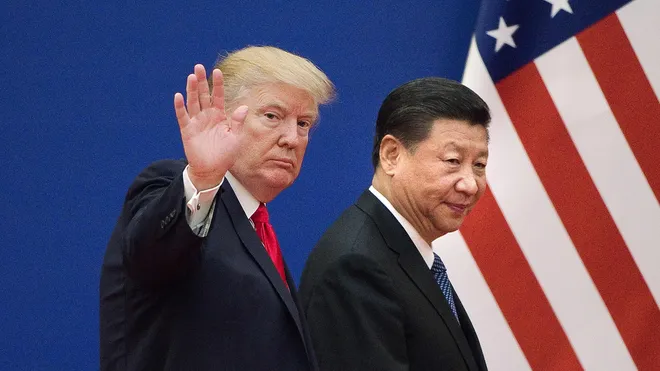
The White House wants to conditionally lift the tariffs on China as part of ongoing trade negotiations
Depending on how the ongoing trade talks proceed, the White House may lower tariffs on China.
A potential tariff cut on Chinese imports is apparently being considered by the Trump administration as part of fresh attempts to defuse trade tensions with Beijing. According to a person with knowledge of the situation, the possible cuts would not be implemented unilaterally and would instead depend on further discussions, the source disclosed on Wednesday.
This comes after a report in the Wall Street Journal suggested that the White House is thinking about lowering its high tariffs on Chinese imports in an effort to ease the long-standing trade tension between the two countries. Tariffs could be lowered from the current rate of 145% imposed since President Donald Trump’s return to office in January to a range between 50% and 65%, the Journal reports.
Several ideas are apparently on the table, and administration-wide conversations are ongoing even though no final decision has been made. The White House has not yet responded to these reports in a formal manner.
The news was well received by investors, as evidenced by the early gains made by US stocks. The benchmark S&P 500 index hit a two-week high Wednesday morning after rising 3.3%. The market was already feeling more optimistic on Tuesday after President Trump’s remarks that suggested a more positive stance on tariffs and his decision to keep the Federal Reserve chair in place.
On Tuesday, Trump told reporters he was certain he could reach a favorable agreement with China that would drastically reduce tariffs. He remarked, “It won’t be that high,” referring to the existing prices, adding that they wouldn’t even get close to that. He reiterated his strong commitment to defending American interests, though, by warning, “If they don’t make a deal, we’ll set the deal.”
Furthermore, it is reported that the administration is thinking of implementing a tiered tariff structure similar to one that was proposed by a House committee on China last year. Non-sensitive commodities would be subject to a 35% tax under that plan, while imports considered strategic or essential to national security may be subject to levies of 100% or higher. The framework would be implemented gradually over a five-year period.
All Categories
Recent Posts
Tags
+13162306000
zoneyetu@yahoo.com



